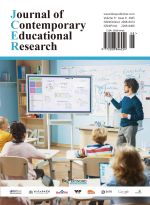Abstract
Under the current medical education reform, the “clinical-research” model for TCM master’s degrees is a key approach to advancing the modernization of traditional Chinese medicine. With the core of “dual-track integration,” this model aims to enhance both clinical practice and research abilities simultaneously. However, ten years of practice have shown that it still faces multiple challenges: an imbalance between clinical rotation time and research investment, deeply rooted attitudes that prioritize clinical work over research, insufficient TCM research resources and fragmented platforms, and poor coordination between policy and teaching design. These issues, particularly the methodological differences between TCM experience-based medicine and modern evidence-based medicine, further complicate the integration of clinical and research efforts. Therefore, there is an urgent need to promote the deep integration of research training into clinical practice through system design, value orientation, and evaluation systems, fostering a new ecological environment where clinical and research efforts thrive together. This will help cultivate TCM professionals with both strong clinical skills and innovative research capabilities, providing sustained momentum for the high-quality development of traditional Chinese medicine.
References
Fan G, Du Y, Yu J, et al., 2020, Practical Research on the Construction of Quality Assurance System for Master’s Degree Students of Clinical Medicine. Modern Medicine and Health, 36(19): 3161–3163.
Yang Z, Liu H, 2015, Recognition and Reflection on the Integration of “Specialized Master” and “Regulation Training”. Beijing Traditional Chinese Medicine, 34(9): 751–753.
Li Q, Sun X, Yang W, et al., 2022, Exploring the Cultivation of Scientific Research and Innovation Ability of Chinese Medicine from the Perspective of Graduate Students. Chinese Ethnic and Folk Medicine, 31(1): 112–115.
Liu L, Wang H, Zhang C, et al., 2018, A Preliminary Study on the Role of Chinese Medicine Teacher Education in the Training of Professional Master’s Degree Students of Acupuncture and Moxibustion. China Medical Science, 8(18): 24–27.
Hu M, Liu W, Yin X, et al., 2021, Research on the Utilization Efficiency of Scientific Research Resources and Its Dynamic Evolution Trend in Higher Chinese Medicine Institutions. Chinese Journal of Social Medicine, 38(4): 455–459.
Cao X, Cui Y, He Z, et al., 2021, Practice and Thoughts on the Cultivation of Clinical Medical Master’s Degree Students Based on “Double-Track Unity”. Popular Science and Technology, 23(2): 86–88.
Zhang J, 2025, Several Key Issues in Evidence-Based Chinese Medicine Research. Tianjin Traditional Chinese Medicine, 42(1): 40–44.
Liu T, Shi Y, Wang T, et al., 2024, Reflection and Practice of Clinical Evidence-Based Evaluation in Chinese Medicine under the System of Disease-Evidence Integration. Chinese Journal of Experimental Formulary, 30(22): 127–136.
Dong Y, Zhu L, Jia L, et al., 2016, Ontology-Based Comparative Study of Knowledge Systems of Chinese and Western Medicine. Chinese Journal of Chinese Medicine Library and Intelligence, 40(3): 11–15.
Yu T, 2016, Theoretical System Construction and Key Technology Analysis of Chinese Medicine Knowledge Engineering. Knowledge Management Forum, 1(5): 336–343.
Li T, Bi Z, 1998, The Conflict Between the Scientific Paradigms of Chinese and Western Medicine. Shanghai Journal of Traditional Chinese Medicine, 1998(12):5–7.
Li H, 2022, Opportunities and Challenges for Traditional Chinese Medicine Regenerative Medicine under a Clinical-Research Integration Model. Chinese Journal of Traditional Chinese Medicine, 37(10): 5558-5563.
